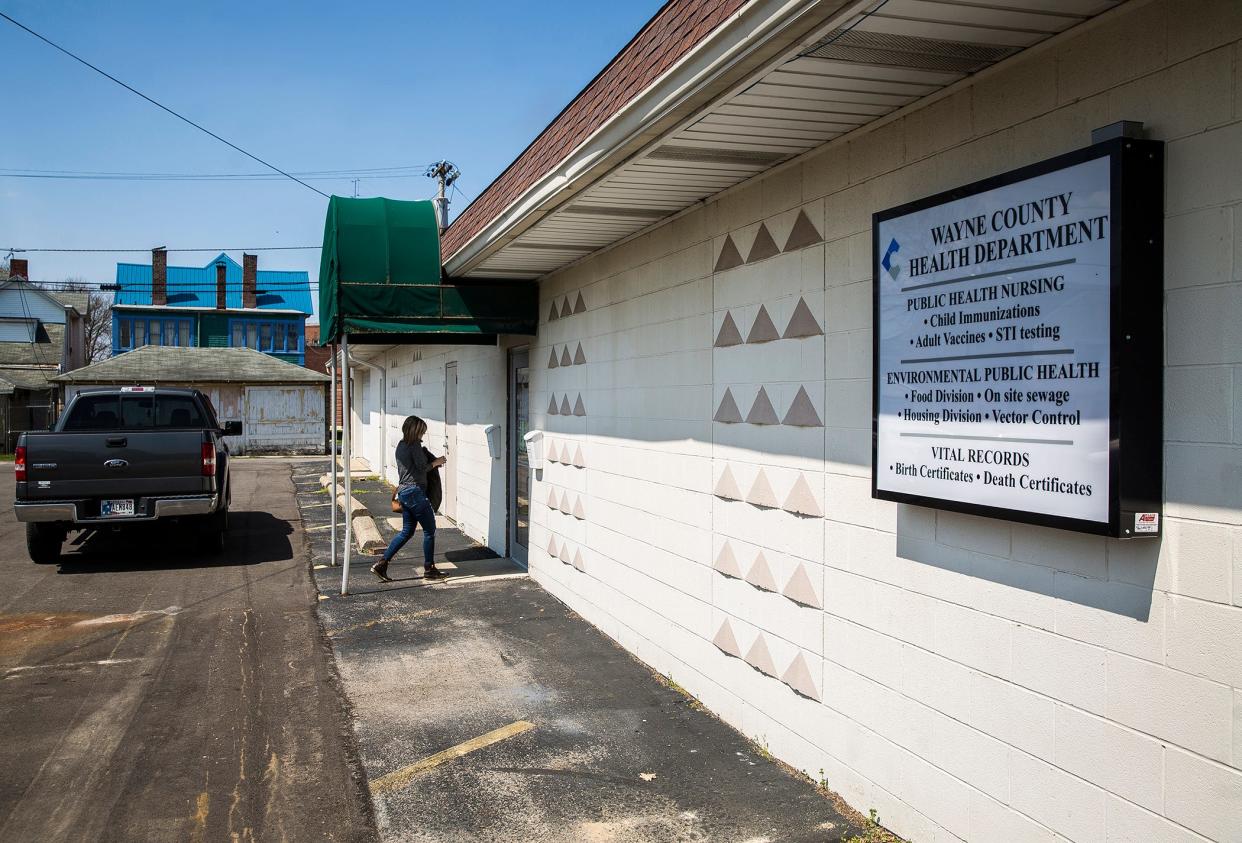Indiana expands assistance for children exposed to lead

RICHMOND, Ind. — Children's lead exposure can cause lifelong health effects.
The exposure, mostly from paint in homes built prior to 1978, can damage the brain and nervous system, create learning and behavior problems, slow growth and development or cause nausea and hearing loss, according to a Wayne County Health Department news release.
Beginning July 1, the Indiana State Department of Health lowered the lead level in children that it considers elevated. Lowering the blood lead reference and another law that expands testing and takes effect Jan. 1 are steps toward reducing children's lead exposure risk.
Danger: Resident uninjured when building roof partially collapses
“It is so important to know your child’s lead level," said Dr. David Jetmore, the county's health officer, in the release. "Early detection and the ability to stop the exposure to the lead can lessen the effects of the lead exposure to a child.”
The state's new blood lead reference is 3.5 micrograms per deciliter, which aligns with the Centers for Disease Control and Prevention level for children younger than 6. The CDC, however, says no lead exposure is safe for young children who are especially vulnerable because their bodies are developing and growing rapidly.
“Reducing the blood lead threshold in Indiana has been a years-long process that has required partnerships with healthcare providers, local health departments and lawmakers to identify the resources and funding needed to ensure that more Indiana children not only were tested for lead, but that those with elevated levels could receive appropriate services,” said Kris Box, the state health commissioner, in the release.
Police: Troopers who patrol Wayne County honored by Indiana State Police
“The CDC states clearly that no level of lead is safe in a child, and we are grateful to state lawmakers for providing funding through House Enrolled Act 1007 to support our efforts to increase testing and case management to protect our most vulnerable Hoosiers.”
Health department reactions will now begin at the 3.5 blood reference level. The health department will educate families about lead risks and advise that siblings are tested when a child is found with a blood lead level between 3.5 and 4.9 micrograms per deciliter.
With a blood lead level of 5 or more, a child will be enrolled in case management with the health department. That involves a home visit by trained case support personnel and a home risk assessment by a licensed assessor. Participating families receive information about potential leaded objects or surfaces in the child’s environment and about available support services.
Crime: Richmond drug dealer sentenced to 16 years of incarceration
The home assessment involves testing home surfaces where lead hazards might exist. Families will receive help addressing surfaces that are lead hazards.
Throughout Indiana, the lower thresholds are expected to increase caseloads by nearly 600 children to about 2,000. Wayne County was told to expect more than 50 new cases when the threshold lowered. The county has many older homes with lead paint that becomes exposed when more recent paint cracks.
Plastics, toys, jewelry and other consumer products also can be sources of lead.
“Every Indiana child deserves to be protected from the hazards of lead exposure,” Box said. “Unfortunately, before this funding became available, some counties were able to offer case management to children whose lead levels were between 5 and 9.9 micrograms per deciliter, and others were not.
"These changes help ensure that every child has access to the same level of case management and puts Indiana among the states leading the nation by providing case management services at a level of 5.0 or higher.”
State Rep. Brad Barrett, a Richmond Republican representing District 56, helped new legislation requiring healthcare providers offer lead screening to all children younger than 6 become law. Parents are not required to agree to the testing.
The state had only required children covered by Medicaid be tested for lead at 12 and 24 months.
The Wayne County Health Department offers blood lead testing during all immunization appointments at 12 months and 24 months. Testing is also offered during immunization appointments for any child 7 years and younger who has not had a prior blood lead level test.
Children not receiving immunizations through the Wayne County Health Department can still have the health department test their blood lead levels.
To make an appointment call 765-973-9245.
This article originally appeared on Richmond Palladium-Item: Indiana expands assistance for children exposed to lead

